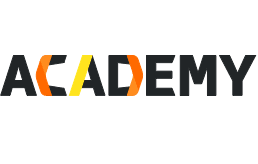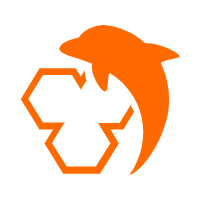By: Jeremy Pedersen
It's Friday again, which means another blog is rolling out the door!
This is the 40th weekly blog from the Alibaba Cloud Academy team so far, and I've enjoyed writing each and every one of them....even when there was a lot of cursing and rewriting of code involved!
This week we're taking things easy, with a mix of updates and answers to questions that have come during my last few training deliveries for the Academy Team.
There are a couple of updates from the Alibaba Cloud Database team this week. Here are my favorites:
1. Auto Scaling support has been added for PolarDB MySQL databases
Auto Scaling in PolarDB is not new: in fact, this is one of the key reasons to choose PolarDB over ApsaraDB for RDS. Previously, support for Auto Scaling was limited to Pay-As-You-Go (PAYG) PolarDB clusters. This update expands that support to Subscription clusters as well.
You can learn more about PolarDB MySQL's Auto Scaling feature (in general) here.
2. The public preview period for sensitive data protection in DMS is over
You remember DMS, right? I've talked about it in at least one previous blog post. It's a very handy tool for managing databases on Alibaba Cloud, whether those databases are managed (PolarDB, RDS) or self-built (databases on ECS).
One of the features of DMS is the ability to detect and mask sensitive data. This feature, which was free while it was in preview, will now become a paid feature, so if it's something you plan on using be aware that there will be charges for using it.
It looks like the pricing page has already been updated to include information about this change. It looks like the current charges are:
So keep that in mind!
3. There are now fees for downloading database backups
If you use ApsaraDB for RDS, you'll know that RDS instances allow you to make backups (both of logs and database content), which (depending on your RDS disk type) you can download directly.
If you download these backups over the public Internet, you'll now be charged a per-GB rate for data in excess of 500 GB / month. The charge will be 0.125 USD / GB for Mainland China Regions, and 0.15 USD / GB everywhere else (including Hong Kong).
Note that downloads of backups within the Alibaba Cloud internal network are still free, at least for traffic that stays within a single Region.
4. One-click upgrades for RDS MySQL databases
There are now one-click major version upgrade paths for RDS MySQL, supporting:
Take advantage of those, especially if you're on a version of MySQL older than 5.7!
5. One-click upgrades from Basic to HA (High Availability) Edition, for RDS MySQL databases
This feature only supports MySQL 5.7 and 8.0, but is really nice because it gives you a direct path from a single-node Basic edition RDS instance to a two-node HA edition RDS instance, without performing a migration.
Maybe you've got a MySQL database that was only every intended to be "for testing" or "temporary", or "just a stop gap". It happens!
Now you can take those unintentional production databases and give them additional reliability with a single click in the web console. Do it!
The right answer is DMS (Data Management System). This is a browser-based tool that Alibaba Cloud provides to allow easy access to PolarDB and RDS databases, though it also works well with key-value stores like MongoDB, and can talk to self-built databases on ECS as well.
The basic version is free, and in fact if you click on the "Log on to database" button in the RDS console, what it actually does is open DMS in a new tab!
I have written about DMS before, actually: it's a great way to set up test environments for doing other things (like learning how to import data into DataWorks and build data processing workflows).
First of all, good on you for taking security precautions!
Yes, this is possible. There are two ways to achieve this, depending on your time, cost, and security requirements.
The first way: a leased line
If you need a direct, high-bandwidth, physical connection between your system and Alibaba Cloud, setting up a leased line is the way to go. You can do this with Express Connect, which allows you to bind an Alibaba Cloud VPC group to a leased line connection.
The second way: a VPN connection
VPN Gateway offers a faster, simpler, and cheaper solution than Express Connect. Of course, there are tradeoffs: your traffic passes (encrypted) over the public Internet, rather than a dedicated line, and you won't get the same rock-solid reliability you get from a leased line, as your traffic may wind up traversing many ISPs networks on its way to Alibaba Cloud.
Still, for testing and for smaller-scale migrations, VPN Gateway is a great option, and it can be set up in minutes.
A connection from AWS to Alibaba Cloud with VPN Gateway would look something like this:

There's a running joke that virtually any Amazon AWS service can be coaxed into running a container. As it turns out, you could make the same joke about Alibaba Cloud!
This list is just a first attempt. On further reflection (and with some input from readers), I'm sure we can expand the list further.
Here are the obvious ones:
...and a few honorable mentions as well:
I have left Dedicated Hosts, Elastic Bare Metal, Super Compute Cluster, etc.... off the list, because these are all essentially just special versions of ECS, which already occupies the #1 slot.
Did I forget any? Feel free to email me and tell me about it (see below)!
Great! Reach out to me at jierui.pjr@alibabacloud.com and I'll do my best to answer in a future Friday Q&A blog.
You can also follow the Alibaba Cloud Academy LinkedIn Page. We'll re-post these blogs there each Friday.
Dealing With Data: Batch Data Import Using DataWorks - Friday Blog - Week 41
JDP - December 2, 2021
JDP - February 10, 2022
JDP - April 23, 2021
JDP - September 15, 2021
JDP - March 3, 2022
JDP - March 25, 2022
 Alibaba Cloud Academy
Alibaba Cloud Academy
Alibaba Cloud provides beginners and programmers with online course about cloud computing and big data certification including machine learning, Devops, big data analysis and networking.
Learn More PolarDB for PostgreSQL
PolarDB for PostgreSQL
Alibaba Cloud PolarDB for PostgreSQL is an in-house relational database service 100% compatible with PostgreSQL and highly compatible with the Oracle syntax.
Learn More PolarDB for Xscale
PolarDB for Xscale
Alibaba Cloud PolarDB for Xscale (PolarDB-X) is a cloud-native high-performance distributed database service independently developed by Alibaba Cloud.
Learn More ApsaraDB RDS for MySQL
ApsaraDB RDS for MySQL
An on-demand database hosting service for MySQL with automated monitoring, backup and disaster recovery capabilities
Learn MoreMore Posts by JDP